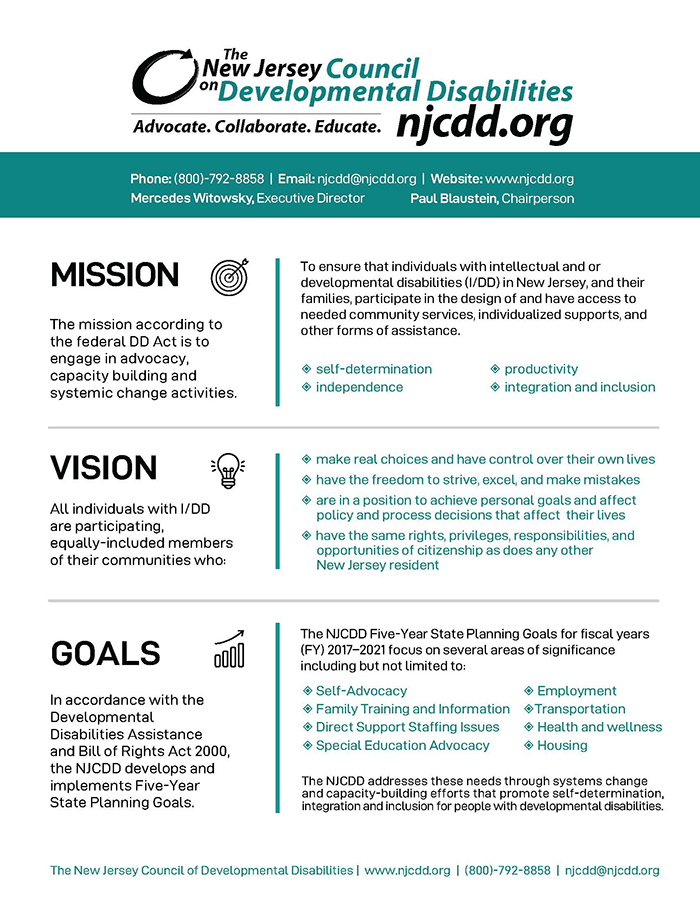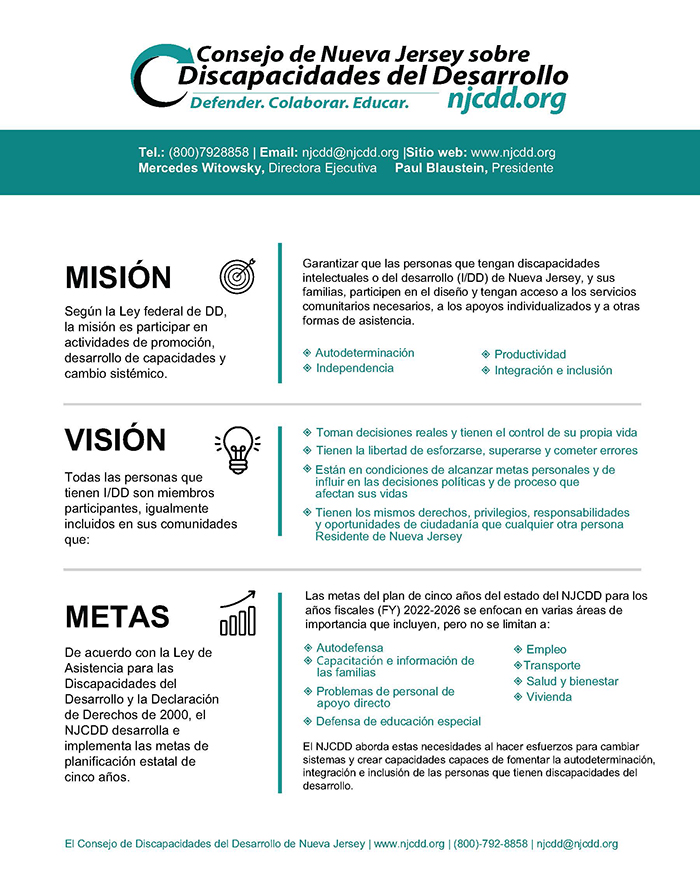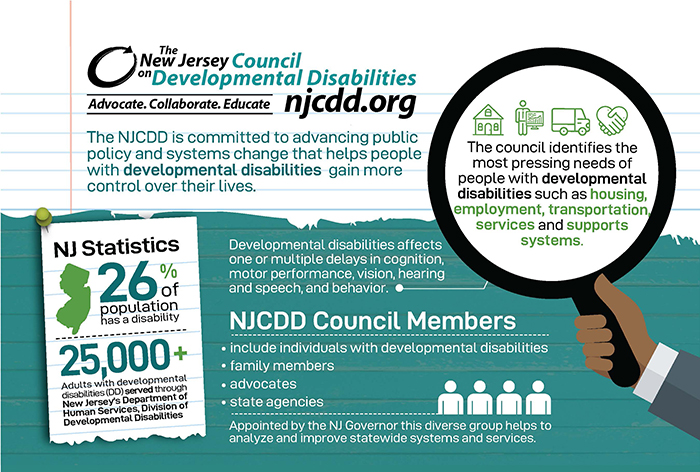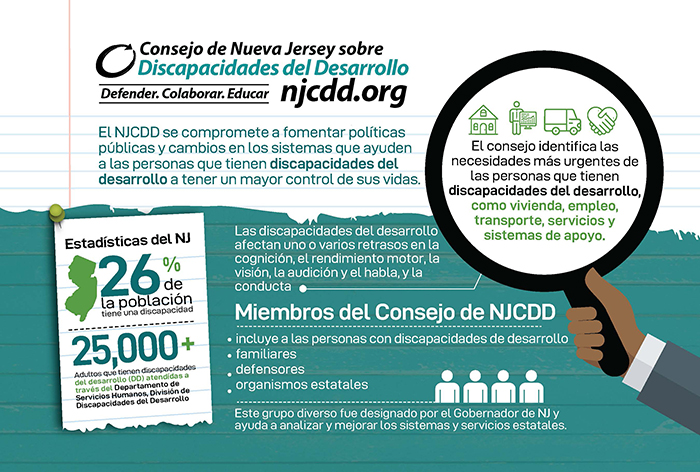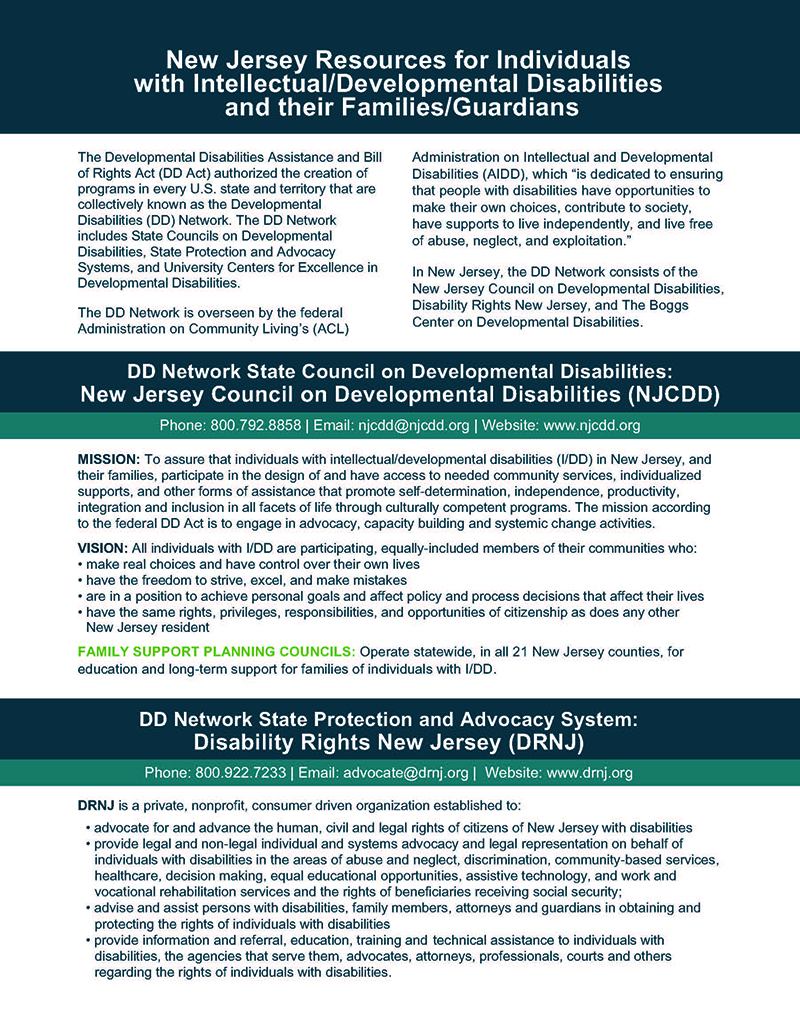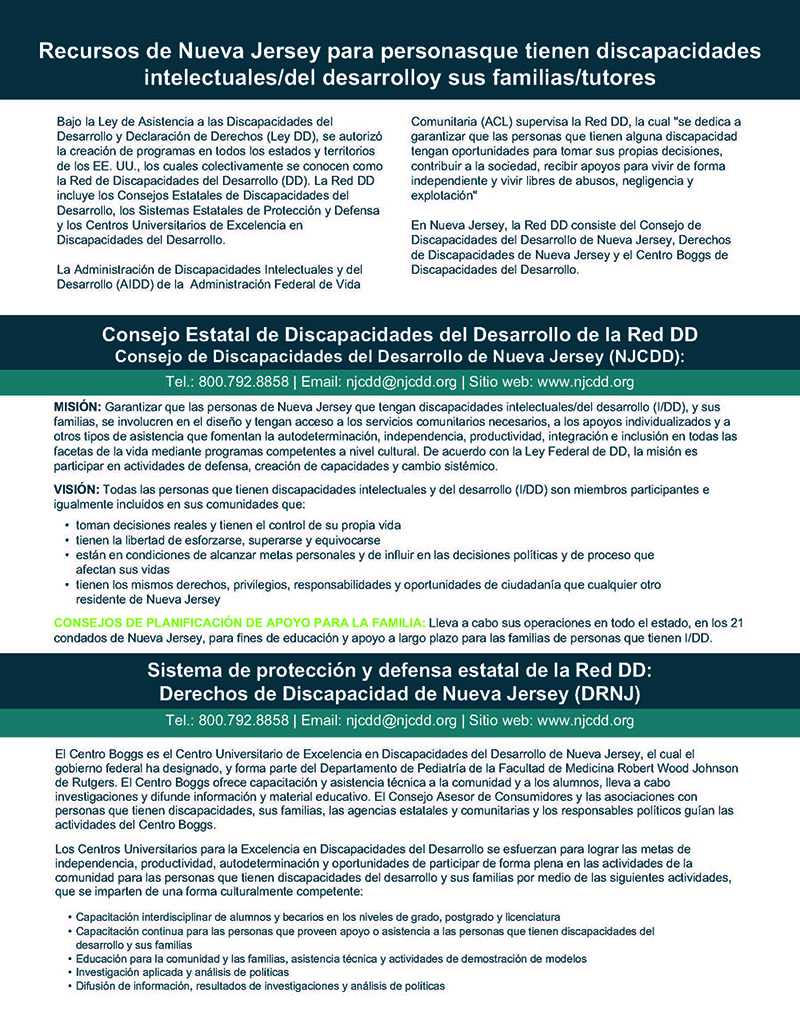NJCDD Fact Sheet
NJCDD Postcard
NJ Resource Fact Sheet
Mission & Vision
MISSION: To assure that individuals with intellectual/developmental disabilities (I/DD) in New Jersey, and their families, participate in the design of and have access to needed community services, individualized supports, and other forms of assistance that promote self-determination, independence, productivity, integration and inclusion in all facets of life through culturally competent programs.
The mission according to the federal DD Act is to engage in advocacy, capacity building and systemic change activities.
VISION: All individuals with I/DD are participating, equally-included members of their communities who:
• make real choices and have control over their own lives
• have the freedom to strive, excel, and make mistakes
• are in a position to achieve personal goals and affect policy and process decisions that affect their lives
• have the same rights, privileges, responsibilities, and opportunities of citizenship as does any other New Jersey resident
In accordance with the Developmental Disabilities Assistance and Bill of Rights Act 2000, the NJCDD develops and implements Five-Year State Planning Goals. The NJCDD Five-Year State Planning Goals for fiscal years (FY) 2017–2021 focus on several areas of significance to the developmental disabilities community including but not limited to:
• Self-Advocacy
• Family Training and Information
• Direct Support Staffing Issues
• Special Education Advocacy
• Employment
• Transportation
• Health and Wellness
• Housing
The NJCDD addresses these needs through systems change and capacity-building efforts that promote self-determination, integration, and inclusion for people with developmental disabilities.
Activities
Family Support Planning Councils: Operate statewide, in all 21 New Jersey counties, for education and long-term support for families of individuals with I/DD.
People First New Jersey: Local chapters help individuals with I/DD speak for themselves, help each other, and make sure their collective voices are heard.
Youth Leadership Training Program: Eight two-hour training sessions teach young people with I/DD a variety of skills needed to help them become better self-advocates.
Public Policy
In an effort to work towards established goals and objectives, the NJCDD has taken positions and made clarifying statements regarding:
• Deinstitutionalization
• Direct Support Professionals
• Education
• Restraints and Seclusion
• Employment
• Disability Rights
• Housing
• Healthcare Access
• Transportation
Grants
NJCDD issues grant funding to help promote the five-year plan’s goals and objectives. Grantees are innovative organizations and programs that provide services to people with I/DD. Each fiscal year, the Council issues requests for funding proposals and accepts proposals from qualified applicants. Grants may be awarded on a single or multi-year basis.
Publications
NJCDD produces a variety of free resource materials designed to support individuals with I/DD and their families including, but not limited to:
People & Families: A nationally-recognized quarterly publication highlighting organizations, programs, and people who make positive changes for the individuals with I/DD and their families.
NJ Common Ground: Published three times per year, Common Ground shares information about issues impacting students with disabilities with broad range of stakeholders – general education teachers, parents, legislators, speech therapists, and others.
Advocacy in Action E-Newsletter: provides important announcements and updates about the Council’s activities, grants, and special initiatives. It also includes key information about public policies and other news items.
Disability Focus Blog: Highlights important news, legislation, and current events that affect people with developmental disabilities and their families. Disability Focus provides commentary on issues that matter and new trends in our communities.

